Peter Dornauf – 24 January, 2014
Woodings uses a hyperrealist mode and this method - realism on steroids - suits his subject perfectly. These use the trope of the coin operated arcade machine which Woodings has worked on before to explore a variety of social issues. Here the slot machine one finds in arcades in every mall in the country becomes a symbol and means to comment on the Christchurch predicament.
Artists have responded to the shocking phenomena of the Christchurch earthquake/s in their work and practice in a number of diverse ways, but invariably and predictably those ways usually involve a tone that is solemn, grave, perhaps sad, maybe heartening and moving with a certain uplifting and elevating demeanour. It’s an earthquake after all and people in need require hope and faith and healing. They require a reason to feel optimistic, to be supported in their grief, grounded and given images that can carry them through the taxing times ahead as they look to the future. What they don’t need is bureaucratic bungling, endless excuses for little being done and PR spin to cover ineptitude and incompetence.
One Christchurch artist who has been brave enough to confront the darker side which deals with those latter troubling issues is David Woodings. His current exhibition at Hamilton’s Artspost, After the Shaking, gathers together three separate but thematically linked series of works that examines, without rose-tinted glasses, the reality of living in limbo for nearly four years who, like many others, is continuing to wait for something to be done and who personally still has to wash his dishes in a bucket and feel the winter draft through cracks and holes in the wall of his house. At a certain point in the waiting, the hope and faith runs out and frustration and scepticism take hold. This is the background and context to the works in the show which are unashamedly political and satirical.
Woodings uses a hyperrealist mode (with a nod toward Populuxe) and this method - realism on steroids - suits his subject perfectly. The three larger works in the exhibition belong to the first series, painted between 2011 - 2013 entitled, Out of Order. These use the trope of the coin operated arcade machine which Woodings has worked on before to explore a variety of social issues. Here the slot machine one finds in arcades in every mall in the country becomes a symbol and means to comment on the Christchurch predicament. The “out of order” title refers literally to those notices pinned periodically to the child’s amusement machine when it has broken down. At another level in the earthquake context, they refer to the failure of the powers that be to implement speedy recuperation processes and expedite plans for the restoration and improvement of life and wellbeing in the city. They refer to everything that has been wrong and incompetent and even corrupt in the handling, management and administration of the recovery.
The three machines Woodings has chosen to place in the literal setting of post-quake ruins are emergencies services represented by a helicopter, fire engine and bulldozer, symbolically referencing the failure of services, over nearly four years, to handle logistical and practical problems adequately and quickly. Out of Order #3, for Bob, is obviously a direct reference to former mayor, Bob Parker, now Sir Bob. The inclusion of the “Bob the Builder” character standing on the machine, the “we can do it” man, becomes ironic in so many ways. Both the helicopter and fire engine in Out of Order #1 and #2 are toys presented in mint immaculate condition, blown up to life size, brightly coloured and smoothly finished like the glassy surface of a scooped ice-cream, like something straight out of Disney.
This sets up a sardonic frisson between toy and the actual ruins in which they are positioned, acting as metaphor for the disjunction between reality and fantasy, promise and failure to deliver, the gap between the adult world and the pretend adult world where one begins to slip onto the other. The toy becomes a symbol, in context, of a feigned simulation, speaking of all that which is fake and counterfeit. Not only are things out of order, but what is suggested here also is that the “order” was a fabrication in the first instance.
That all of this is presented in super realist fashion where surfaces gleam and look more real than real, simply adds to the bizarre contradictions that present a miss-match between political huff and puff and actuality as seen on the ground.
In 2012 with still nothing happening to rectify on-going appalling living conditions for the artist personally and for many others in the city, Woodings decided, as a way of managing as a fulltime artist under these conditions, to paint the same subject over repeatedly in a kind of manic Groundhog Day scenario with the intention of not stopping until something did change. It resulted in thirty paintings all of which depict the same arcade slot machine, a silver horse where each is presented in identical detail. The whole suite of paintings is called 30 Pieces of Silver with all the obvious connotations associated with that phrase, plus several other layers of meaning; the silver horse a mocking reference to the Lone Ranger’s horse where no one comes to the rescue in time while the price for the ride, two shillings, (deliberately altered from the usual 50 cents) alludes to the colloquial term for that amount - two bob - another reference to the lead actor in the muddled drama in which no silver lining was or is apparent.
In a similar but smaller suite of paintings that treat the silver horse in the same fashion, entitled, One for You and Two for Me, Woodings alludes in the title to the 1958 film Tom Thumb in which the villains divide up the loot using the same devious formula. The artist has in mind a similar iniquitous modus operandi employed by the government in deciding how to value land they acquired after the quake.
The show is completed with a third set of works, Still Lives, which take as their subject individual items of antique and historic value, broken ceramic pieces and glassware, objects of singularity which can never be repaired or replaced and setting them against/inside the backdrop of a wine box. The poignancy of the arrangement (broken treasures collected in boxes) becomes apparent when one learns that alcohol consumption rose sharply in the city not only immediately after the earthquake but in the subsequent years as the toll of events and their repercussions mounted, compounded by a sorry tale of bureaucratic mendacity.
This is the first time Woodings has been able to hang all three series of works together (in Christchurch approximately a dozen dealer galleries that once operated no longer exist) and their complementary nature adds immensely to viewer enjoyment where photorealism meets surrealism in a caustic disclosure of political narration.
Peter Dornauf
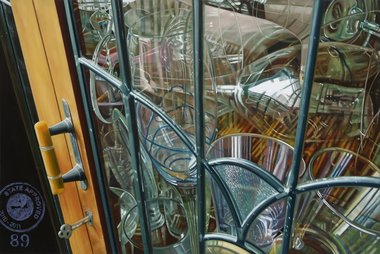
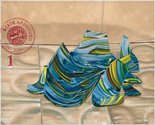
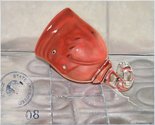
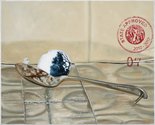
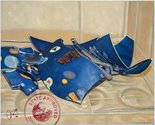

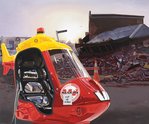
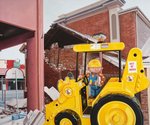
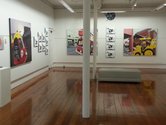
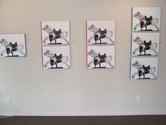

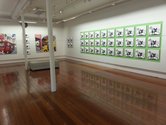
 Advertising in this column
Advertising in this column Two Rooms presents a program of residencies and projects
Two Rooms presents a program of residencies and projects
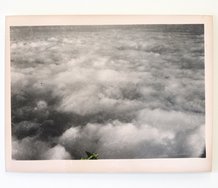
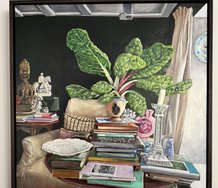
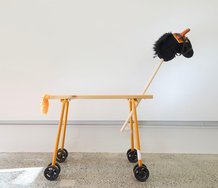
This Discussion has 0 comments.
Comment
Participate
Register to Participate.
Sign in
Sign in to an existing account.